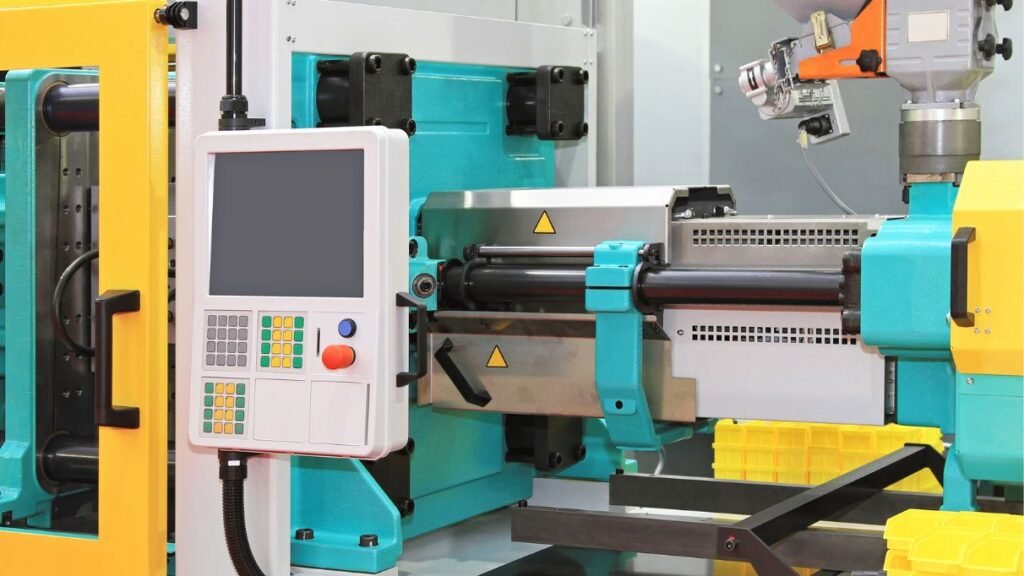
Moldeo por inyección de plástico a medida
Obtenga piezas de plástico personalizadas en cuestión de días. Solicite un presupuesto en línea.
Certificaciones
ISO 9001:2015 | Registro ITAR | Inspecciones críticas de calidad
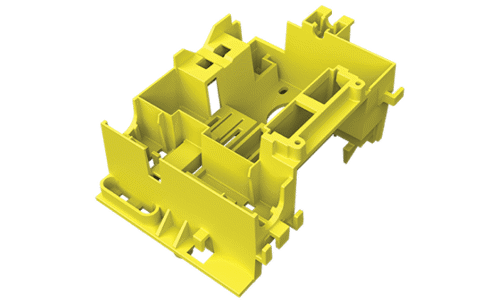
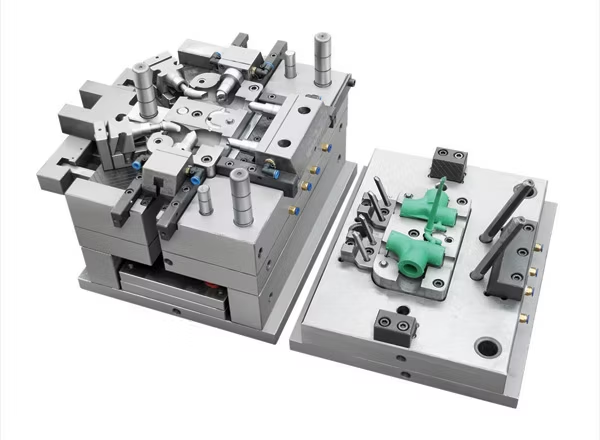
¿Qué es el moldeo por inyección de plásticos?
El moldeo por inyección es un proceso de fabricación que consiste en llenar la cavidad de un molde metálico con resina plástica líquida, que luego se enfría y forma una pieza de plástico.
Se utiliza sobre todo para la fabricación de piezas de plástico a gran escala por su escaso desperdicio de material y su bajo coste por pieza. Es un proceso de fabricación ideal para industrias como la de dispositivos médicos, productos de consumo y automoción.
Nuestro proceso de moldeo por inyección de plástico produce prototipos personalizados y piezas de producción de uso final con plazos de entrega de tan solo 1 día. Utilizamos moldes de aluminio que ofrecen herramientas rentables y ciclos de fabricación acelerados, y tenemos en stock unas 200 resinas termoplásticas diferentes.
Aplicaciones habituales del moldeo por inyección de plásticos:
- producción de bajo volumen
- utillaje para puentes
- fases piloto
- pruebas funcionales y creación de prototipos
Capacidad de moldeo de plásticos
Nuestras directrices básicas para el moldeo por inyección de plástico incluyen importantes consideraciones de diseño para ayudar a mejorar la moldeabilidad de la pieza, mejorar el aspecto estético y reducir el tiempo total de producción. Consulte nuestra página de directrices de diseño para obtener más información.
| US | Métrica |
| TALLA | 18,9 pulg. x 29,6 pulg. x 8 pulg. | 480 mm x 751 mm x 203 mm |
|---|---|---|
| VOLUMEN | 59 cu. in. | 966.837 mm cúbicos |
| PROFUNDIDAD | 4 pulgadas desde la línea de separación | 101mm desde la línea de separación |
| Hasta 8 pulg. si la línea de apertura puede pasar por el centro de la pieza | Hasta 203,2 mm si la línea de apertura puede pasar por el centro de la pieza. | |
| ÁREA PROYECTADA DEL MOLDE | 175 pulgadas cuadradas | 112.903 mm2 |
Tolerancias: Típico, Mekalite puede mantener una tolerancia de mecanizado de +/- 0,003 pulg. (0,08 mm) con una tolerancia de resina incluida que puede ser superior pero no inferior a +/- 0,002 pulg./pulg. (0,002 mm/mm).
Materiales termoplásticos
Disponemos de una amplia selección de más de 100 materiales termoplásticos y termoestables. Y si busca opciones de materiales alternativos, consulte nuestra guía de sustitutos de resina para ABS, PC, PP y otros plásticos moldeados habitualmente.
- ABS
- ABS/PC
- Acetal
- Homopolímero de acetal/Delrin
- ETPU
- HDPE
- LCP
- LDPE
- LLDPE
- Nylon
- PBT
- PC/PBT
- PEEK
- PEI
- PET
- PETG
- PMMA (acrílico, plexiglás)
- Policarbonato
- Polipropileno
- CCE
- PPE/PS
- PS
- FUENTE DE ALIMENTACIÓN
- TPU
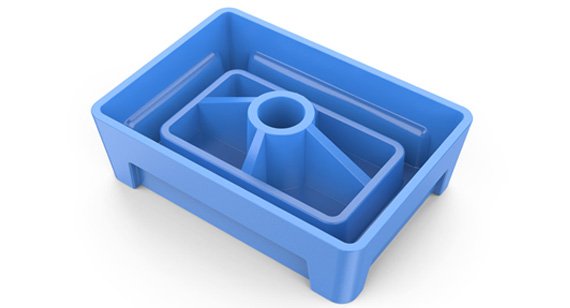
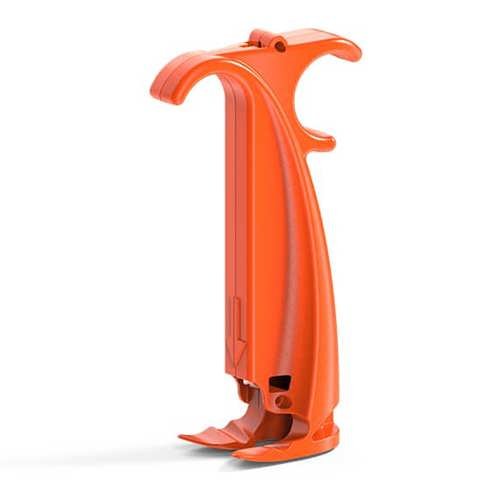
Opciones de acabado superficial
Los requisitos de ángulo de inclinación varían según el acabado solicitado. También están disponibles los acabados Mold-Tech estándar del sector.
| ACABADO | DESCRIPCIÓN |
|---|---|
| PM-F0 | no cosmético, acabado a discreción de Protolabs |
| PM-F1 | poco cosmético, la mayoría de las marcas de herramientas eliminadas |
| PM-F2 | no cosmético, EDM permitido |
| SPI-C1 | Piedra de grano 600, 10-12 Ra |
| PM-T1 | SPI-C1 + granallado ligero |
| PM-T2 | SPI-C1 + granallado medio |
| SPI-B1 | Papel de lija 600, 2-3 Ra |
| SPI-A2 | grado #2 diamante buff, 1-2 Ra |
Inspecciones de calidad y opciones de acabado para piezas moldeadas a medida
Al solicitar un presupuesto de moldeo por inyección, puede seleccionar una de las siguientes opciones en función de las necesidades específicas de su aplicación:
Inspecciones de calidad para órdenes de fabricación bajo demanda
- Comentarios sobre el diseño para la fabricación (DFM)
- Informe sobre el desarrollo del proceso de moldeo científico
- Inspección en proceso de MMC y supervisión de máquinas
- Inspección del primer artículo (FAI) e informe de capacidad de proceso con GD&T
Opciones de postprocesado
- Texturizado de moldes (Acabados superficiales Mold Tech)
- Insertos roscados
- Tampografía
- Grabado por láser
- Montaje de componentes
No dude en personalizar su presupuesto con estas inspecciones de calidad y opciones de acabado para garantizar los mejores resultados para su proyecto.
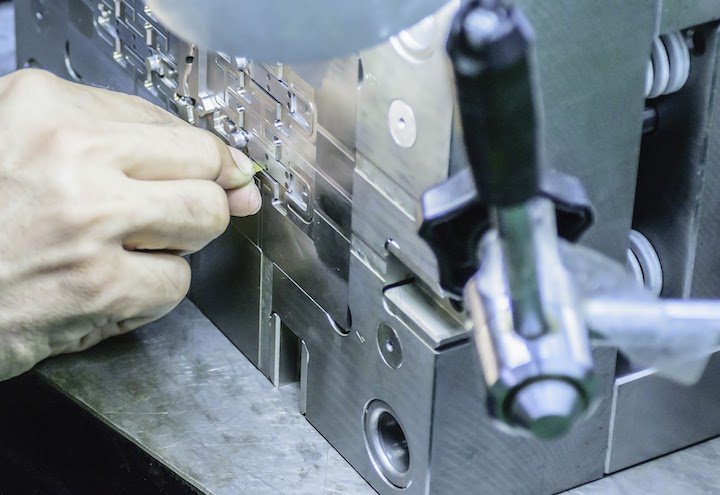
¿Cómo funciona el moldeo por inyección de plástico?
El proceso de fabricación de piezas moldeadas es complejo e implica varios pasos clave para garantizar resultados de alta calidad. Antes de empezar a moldear, ofrecemos información exhaustiva sobre la fabricabilidad y servicios de diseño consultivos para ayudarle a evitar los errores más comunes en el diseño de moldes.

Una vez finalizado el diseño, nuestro proceso de producción se documenta meticulosamente y se optimiza mediante técnicas científicas de moldeo. Esto garantiza que usted reciba piezas uniformes y de alta calidad en cada tirada de producción.
Pasos clave del proceso:
- Identificación de las dimensiones críticas: Nos centramos en las dimensiones críticas para la calidad (CTQ) que usted especifica, lo que nos ayuda a identificar las áreas más cruciales para el éxito de su pieza.
- Cualificación del proceso de moldeo: A medida que se moldean las piezas, utilizamos tecnología CMM automatizada en línea para cualificar el proceso y las muestras. Esto genera una inspección detallada del primer artículo (FAI) y un estudio de la capacidad del proceso sin añadir plazos de entrega adicionales.
- Moldeo por inyección de termoplásticos: Nuestro proceso estándar emplea un molde de aluminio que no contiene líneas de calentamiento o enfriamiento, lo que puede dar lugar a tiempos de ciclo más largos. Durante el moldeo, nuestro equipo optimiza y supervisa de forma independiente la velocidad de llenado, la presión de mantenimiento y el tiempo de mantenimiento, al tiempo que inspecciona periódicamente la calidad y el aspecto de la pieza.
- Inyección y expulsión: Los gránulos de resina se cargan en un barril donde se funden, comprimen e inyectan en el sistema de canales del molde. La resina caliente fluye hacia la cavidad del molde a través de las compuertas, formando la pieza. A continuación, unos pasadores eyectores facilitan la extracción de la pieza del molde, dejándola caer en un recipiente de carga.
- Postproducción: Una vez finalizada la tirada, las piezas (incluidas las muestras iniciales) se empaquetan cuidadosamente y se envían sin demora.
Este enfoque estructurado garantiza que cada aspecto del proceso de moldeo por inyección se supervise y optimice cuidadosamente, lo que da como resultado piezas moldeadas de alta calidad adaptadas a sus necesidades.
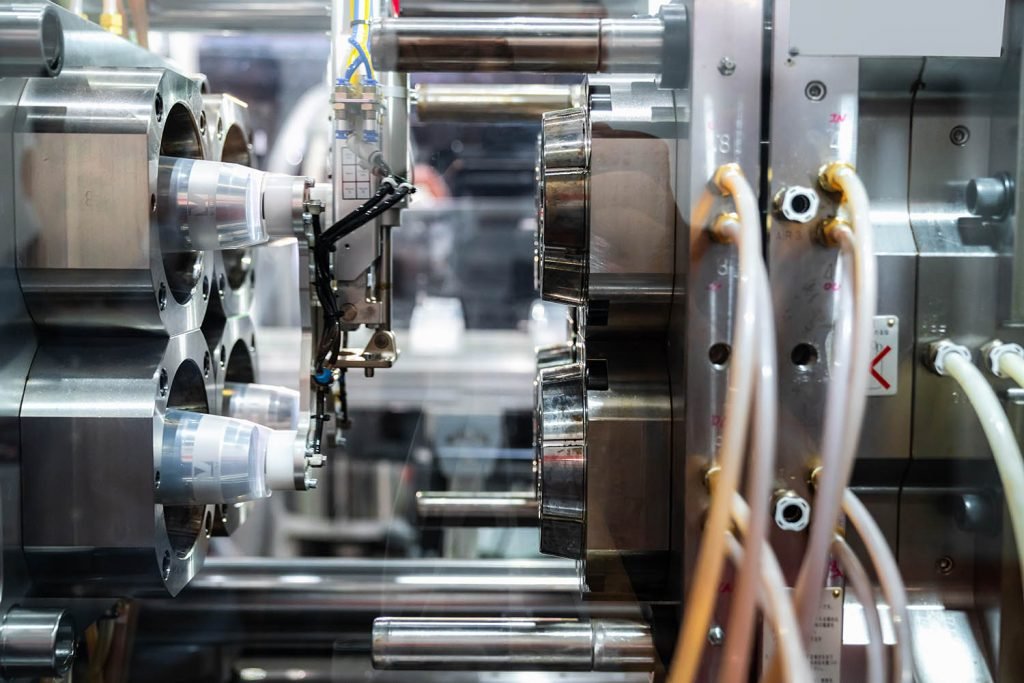
Obtenga hoy mismo un presupuesto en línea y un análisis del diseño de moldeo por inyección.

